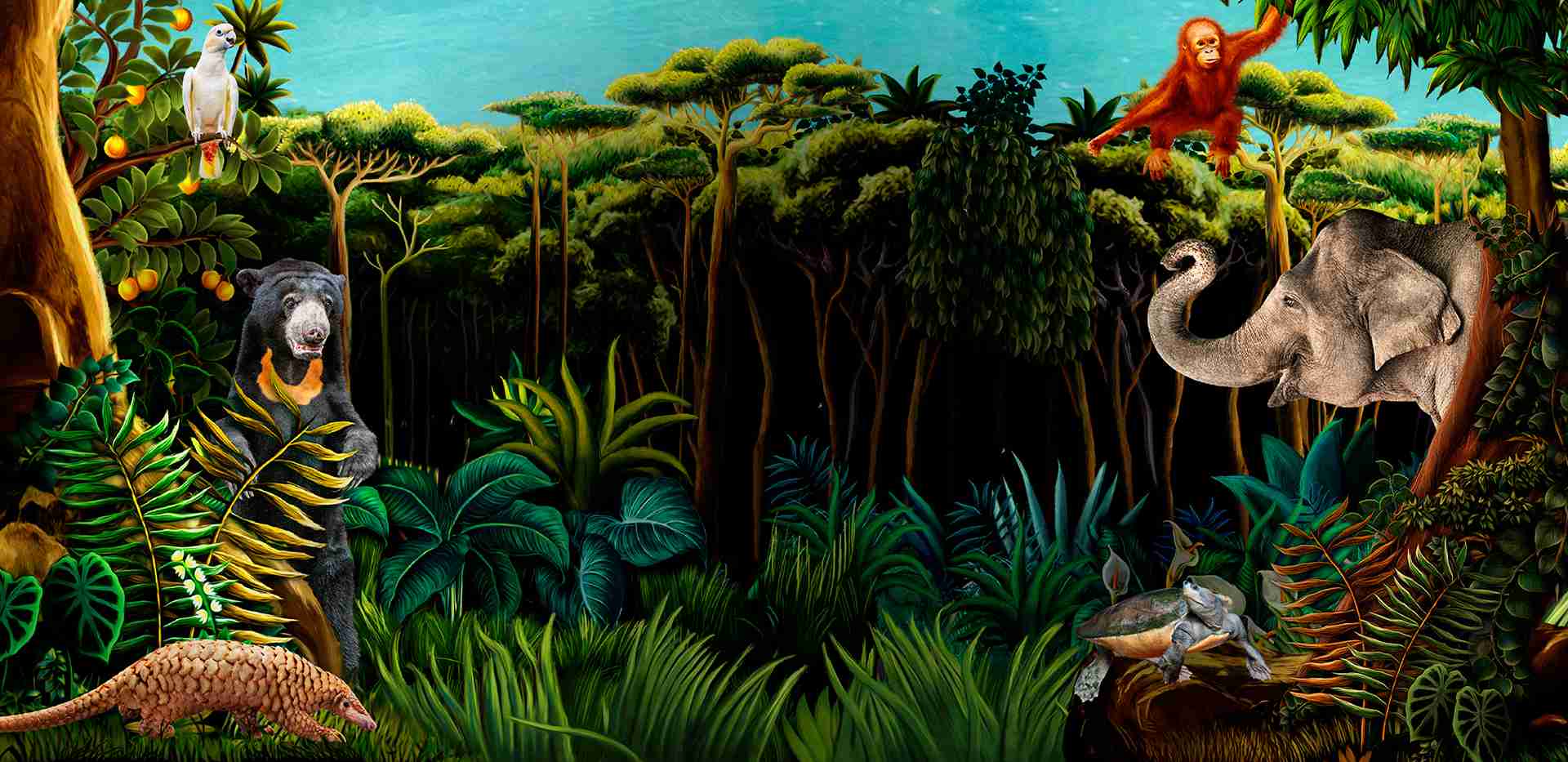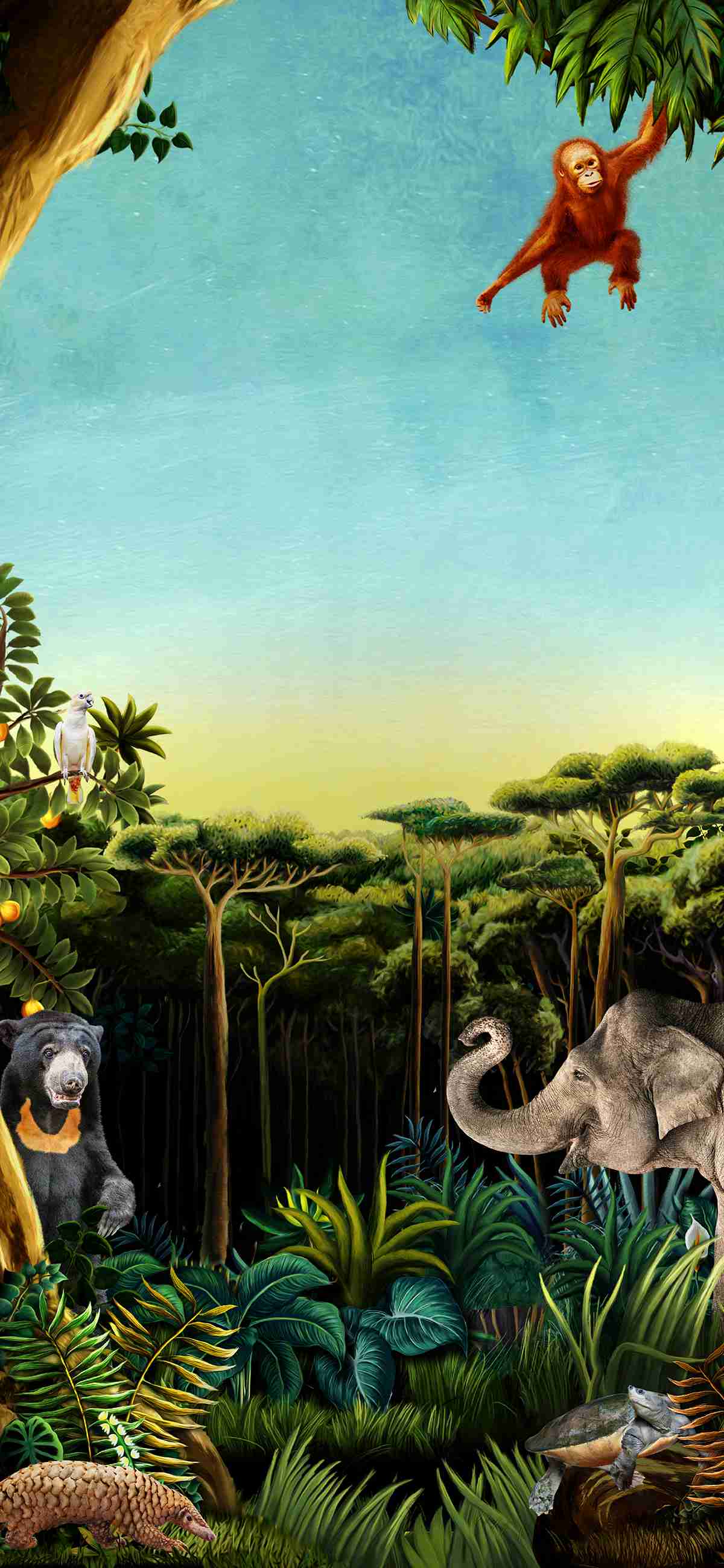Junior sustainability champions battle plastic waste ar River Safari
River Safari’s young Eco-rangers from Canossaville Preschool using a pelican specimen to show how aquatic birds often die from being trapped in plastic waste. Using animal specimens and other props to illustrate the harmful effects of plastic waste on wildlife, the students also encouraged guests at River Safari to opt for reusable alternatives instead of single-use plastics. The activities are part of the Go Green for Wildlife campaign which promotes a more sustainable planet.
PHOTO CREDITS: WILDLIFE RESERVES SINGAPORE
River Safari’s young Eco-rangers from Canossaville Preschool conducting a public book-reading of the book “Little Otter, Litter Trouble” a bilingual storybook published by WRS’ Education department with support from the Lee Kuan Yew Fund for Bilingualism. Limited copies will be available for guests who complete the trail and booth activities in October.
PHOTO CREDITS: WILDLIFE RESERVES SINGAPORE
As part of WRS’ Go Green for Wildlife campaign which this year focuses on fighting plastic waste, 29 six-year-old Eco-rangers from Canossaville Preschool bravely manned River Safari’s sustainability booth and used props and animal specimens to spread the word to park guests about the harmful effects of plastic waste on wildlife such as aquatic birds, otters and sea turtles. They also shared key actions that the public can take to reduce single-use plastic usage:
1) Say no to plastic straws
2) Use a reusable bag
3) Use a refillable water bottle
4) Use reusable lunchboxes for takeaway food
The students also conducted a book reading of “Little Otter, Litter Trouble” to a public audience of approximately 100 people, sharing the tale of a little otter trapped by a discarded fishing net, and how a pair of young siblings work to save it. Written in English and Chinese, the book was published by WRS’ Education department with support by Lee Kuan Yew Fund for Bilingualism to encourage
children to learn their mother tongue. Limited copies will be available for guests who complete the trail and booth activities during the Fight the Deadliest Monster campaign in October.
Aside from preschoolers, polytechnic students were also engaged to think of ways to fight plastic waste. Top entries for the Sustainability Design Competition organised by WRS and Temasek Polytechnic, presenting students’ ideas for reducing single-use take-away containers, will be on display all through October at River Safari and Jurong Bird Park.
May Lok, Director of Education, Wildlife Reserves Singapore said “Initiatives such as working with preschools and polytechnics and publishing the “Little Otter, Litter Trouble” storybook are part of our broader objective to engage the young in our sustainability movement. By educating and empowering children and youth alike to be our sustainability champions, they can in turn inspire their family and peers to adopt sustainable practices”.
The engagement efforts are part of WRS’ public-facing sustainability campaign, Go Green for Wildlife, which is in its third year running. This year’s theme—Fight the Deadliest Monster—focuses on combating the deadly plastic waste monster which kills over a million animals a year, by advocating bring-your-own (BYO) behaviour to reduce the use of plastic disposables.
For more information on Fight the Deadliest Monster activities, please visit www.deadliestmonster.sg
River Safari’s young Eco-rangers from Canossaville Preschool sharing about the dangers of plastic waste posed to wildlife using an otter specimen with a plastic bag stuck on its neck.
PHOTO CREDITS: WILDLIFE RESERVES SINGAPORE
River Safari’s young Eco-rangers from Canossaville Preschool using a turtle plush toy and a photograph to illustrate how turtles mistake plastic bags for sea jellies and ingest them as a result.
PHOTO CREDITS: WILDLIFE RESERVES SINGAPORE
Students from Nanyang Polytechnic presenting their idea that won first place in the Sustainability Design Competition—Turtlery—a food delivery service that incentivises users to opt out of single-use packaging by offering heavy discounts and donations to a cause of their choosing.
PHOTO CREDITS: WILDLIFE RESERVES SINGAPORE
Students from Temasek Polytechnic presenting the idea that won them second place in the Sustainability Design Competition—The Tiffin District—a food delivery service targeting young professionals in the Central Business District using reusable tiffin containers instead of single-use food containers.
PHOTO CREDITS: WILDLIFE RESERVES SINGAPORE

